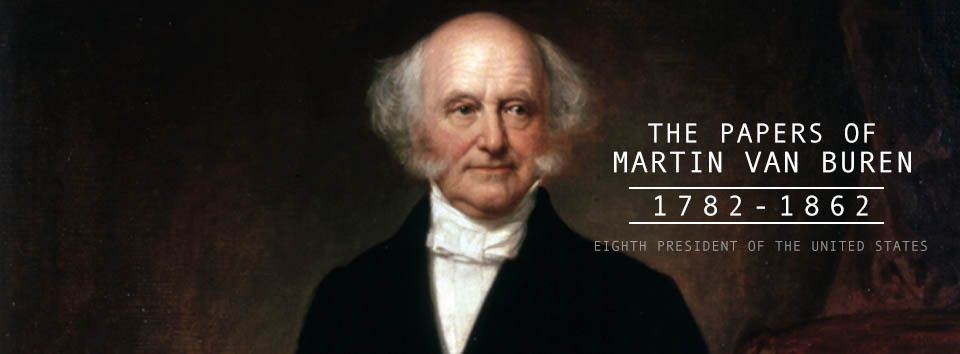7/24/2017
Cumberland University History Professor Mark Cheathem announced today the release of the first set of documents to be made publicly available from modern Democratic Party founder and U.S. President Martin Van Buren on the website VanBurenPapers.org. The documents reveal Van Buren’s personal correspondence and numerous senatorial remarks and speeches from 1825.
These first-pass transcriptions represent the initial stage of the Papers of Martin Van Buren Project, which is a joint digital and print project that will make accessible approximately 13,000 documents belonging to the eighth president. The project is funded by Cumberland University, the National Archives, and the National Historical Publications and Records Commission and is produced in partnership with the University of Virginia’s Center for Digital Editing.
“This was a watershed year in the life of Martin Van Buren,” according to project co-editor James Bradley. “He had experienced two devastating defeats in November of 1824 that rendered him, in his words, ‘as completely broken down a politician as my bitterest enemies could desire.’ He had backed Georgia’s William H. Crawford for president, but Crawford came in third, doing great damage to Van Buren’s reputation as a skilled political manager. Meanwhile, Van Buren’s allies in Albany, N.Y., lost their vast control of the state government when their enemy DeWitt Clinton scored a stunning victory in the 1824 gubernatorial race.”
Cheathem, who is also the project director, said these documents highlight Martin Van Buren’s significant ties to Tennessee, especially with Andrew Jackson. “The year 1825 began with Van Buren and his correspondents commenting on the potential outcomes of the upcoming House vote, which would decide the presidency among Jackson, Crawford, and Massachusetts’ John Quincy Adams,” said Cheathem. “When Adams won the election, Van Buren stepped back and observed the political landscape: ‘The Jackson men being in the field are of course looking out for the weak points in the enemies [sic] lines,’ he wrote New York ally Benjamin Franklin Butler, ‘and are ready for the assault when opportunity offers. We of the Crawford school . . . will not lightly commit ourselves except in defense of old principles.’” Van Buren remained optimistic in the face of uncertainty, according to Cheathem. “He wrote one of his good friends, ‘What is to come out of this time alone can determine, I do not despair of the Republic, and whatever others may do, I mean to hold on to the true faith.’”
“Increasingly seen as a political relic, Van Buren had to reassess things in 1825,” said Bradley. “In his home state, he had to end his decade-long feud with DeWitt Clinton; in Washington, he moved to galvanize the disparate factions that constituted the day’s Republican Party. The future of the party nationally, he believed, lay in the fortunes of the man many thought was robbed of the presidency in 1824: Andrew Jackson.”
The documents also reveal a lighter side of Van Buren’s political relationships, according to Cheathem. “While he was a man who came from relatively modest means, Van Buren recognized that Washington life required a certain standard of living. One of his roommates, U.S. Representative Louis McLane of Delaware, saw things differently. Van Buren wrote McLane’s wife Catherine, that ‘the known economical habits of your husband render it unnecessary for me to say that we live cheap. We at first ventured to question this point a little, but we were silenced, and convinced of our error, by authority.’”
Cheathem is the author or editor of six books and several articles and essays on the Jacksonian and Civil War eras. Four of his books engage directly with the political era with which Van Buren is associated. One, “Andrew Jackson, Southerner” (2013), is an award-winning biography of the seventh president and leading Democratic statesman with whom Van Buren was closely aligned. A second book, “Andrew Jackson and the Rise of the Democrats” (2015), focuses specifically on the development of the Democratic party. Cheathem’s current book projects include a study of Jacksonian political culture, using the 1840 presidential election as its framework, and a study of the 1844 presidential election.
Bradley has been a journalist and editor for more than 20 years, contributing to “The Village Voice,” “The New York Observer,” and “New York Newsday,” among other publications. He has been an editor at Time Inc. since 1998. For five years, he was the senior project editor of “The Encyclopedia of New York City,” published by Yale University Press, now in its second edition. He is currently at work on a biography of Van Buren.
For additional information about the Martin Van Buren Papers project, please visit its website at VanBurenPapers.org.


